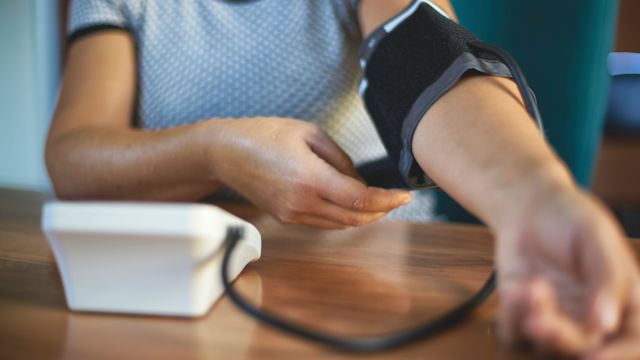Updated on November 15, 2024
Immunoglobulin A nephropathy (IgAN) is a health condition that causes damage to the kidneys, a pair of organs that act as filters for the blood. There is no cure for IgAN, but there are therapies that can help slow the progression of kidney damage and prevent complications related to kidney damage.
One of the most common complications of IgAN is hypertension, also known as high blood pressure.
What happens to the kidneys when a person has IgAN?
To understand the relationship between IgAN and blood pressure, it helps to have a basic understanding of what is happening in the body when a person has IgAN:
The kidneys
The kidneys are a pair of fist-sized organs located in the back, just below the ribs. These organs are often described as filters for the body, removing excess fluid, cellular waste products, and other unneeded substances from the blood. At the same time, the kidneys help the body maintain the proper balance of salts, minerals, and other substances. What the body doesn’t need gets discarded in urine, what the body does need goes back into the bloodstream.
Immunoglobulin A
Immunoglobulin A is an antibody, a protein that helps the immune system fight infections by attaching to harmful substances that enter the body. Immunoglobulin A is one of the first defenses that go to work when a pathogen (like a virus or a disease-causing bacteria) enters the body.
When a person has IgAN, the body produces abnormal immunoglobulin A. These abnormal antibodies clump together and form deposits inside the kidneys. As the body’s immune system attempts to break down these deposits, it causes inflammation, damage, and scarring inside the kidneys. Over time, the kidneys will lose function.
As the kidneys lose function, these organs become less good at filtering the blood. Excess fluid and cellular waste remain in the bloodstream, while blood cells and proteins leak into the urine. Eventually, especially when left untreated, this can lead to kidney failure or end-stage renal disease (ESRD), a severe loss of kidney function that can only be treated with dialysis or kidney transplant.
What is the relationship between kidneys and blood pressure?
Blood pressure is the force that blood exerts on the inner walls of blood vessels as it is pumped through the body. Blood pressure changes during normal activities and throughout the day, and the body’s large blood vessels are flexible and strong to accommodate these fluctuations. Blood pressure that remains too high for too long is called hypertension.
The kidneys play an essential role in maintaining blood pressure:
- By removing excess fluid. Having more fluid in the blood vessels increases blood pressure on the blood vessels.
- By maintaining the balance of sodium. Higher-than-needed sodium levels in the blood increase blood pressure.
- By making and releasing enzymes. The kidneys also produce and release an enzyme called renin, which helps regulate blood pressure.
Hypertension is common among people with IgAN, and the relationship between kidney disease and hypertension is cyclical. As the kidneys become damaged and function less well, blood pressure levels increase. As blood pressure levels increase, it causes damage to blood vessels in the kidneys, causing the kidneys to function less well.
In addition to causing damage to the kidneys, hypertension can also contribute to cardiovascular disease, stroke, vision loss, and sexual dysfunction.
How can high blood pressure be managed in people who have IgAN?
Blood pressure is something that every person living with IgAN should discuss with their healthcare provider. Treatment for IgAN often includes medications that lower blood pressure, such as angiotensin-converting enzyme inhibitors (ACE inhibitors) and/or angiotensin receptor blockers (ARBs).
Lifestyle changes are also important to managing blood pressure, and can include:
- Quitting tobacco, if a person uses any tobacco products.
- Losing weight, if a person is overweight/obese.
- Exercising regularly and exercising safely. A healthcare provider can advise on what forms of exercise are recommended and any precautions that need to be taken.
- Limiting sodium intake. A healthcare provider can provide recommendations on how much sodium should be consumed each day.
In addition to blood pressure medications and lifestyle changes, a treatment plan for IgAN will often include:
- Medications to reduce protein in the urine (proteinuria)
- Medications to improve glomerular filtration rate, a measure of how well the kidneys are functioning
Treatment may also include drugs that suppress the immune system and reduce inflammation. Several novel therapies for IgAN have become available in recent years, and additional therapies are under development.






